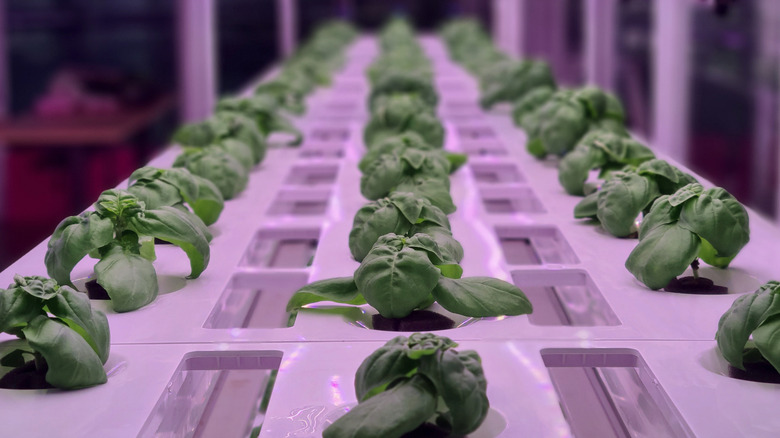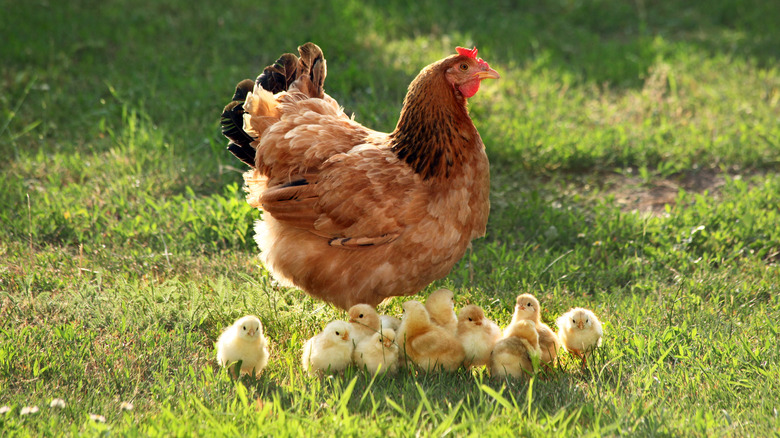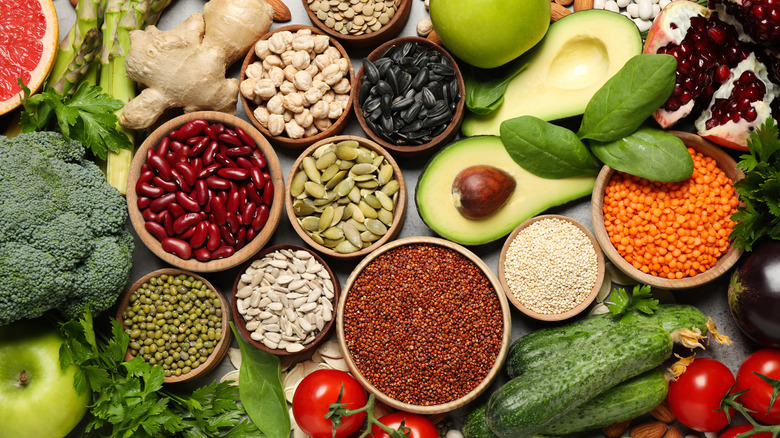The Real Reason Climate Change Could Affect The US Food Supply
While the two may initially seem like separate issues, the state of our food systems and the looming dangers of climate change are very interlinked. In fact, global warming could make food less safe to eat, among other problems.
In a conversation with Foodbeast, NASA's Dr. Cynthia Rosenzweig further elaborates on this topic, noting that "the past eight years have been the warmest consecutively since modern record keeping began in 1880," surmising that "increase heat isn't good news for our food supply." Specifically, Foodbeast states that California — which has experienced excessive drought conditions in recent years — is an immensely important state for food systems, primarily within the production of fruits and nuts. Whether due to heat waves, flooding, droughts, fires, or other natural disasters, crops can easily be wiped out in swaths. Furthermore, this can also affect animals, such as cattle and pigs, which further causes climate issues — and has a severe effect on beef, pork, and veal production.
As Alicia Kennedy noted in an interview with Sophia Bush for Well + Good, "the UN reports that the global food system accounts for 30% of global greenhouse gas emissions." Kennedy attributes a "misuse of land" via industrialized food systems to this growing issue.
How is the food trade affected by the warming climate?
Other important considerations that play into this important discussion are locality, how far food is being shipped, how it is packaged, how is it being prepped prior to shipping, how the workers being treated, animal welfare, sustainability, sourcing, and much more. In her interview with Well + Good, Alicia Kennedy notes that this discussion is "multi-pronged" and that the careful balance of these disparate but similar elements is integral to an ethically sound, successful food system that will be able to sustain humankind for centuries to come.
For many, a wise, simple solution may be to adopt a plant-based — or at least vegetarian — diet. Kennedy astutely notes that "the world has enough food and enough land to feed everybody; it's just how we're using our resources." If that can be changed, perhaps there will be an opportunity for a healthier future for all.
There is a direct correlation between the longevity of our food systems and climate change by way of veganism and vegetarianism; Kennedy even noted that the United Nations has even previously concluded that if a large population were to adopt a plant-based diet in the coming years, there'd be a marked impression and positive change on the growing effects of climate change. Kennedy also states that this doesn't always mean entirely eschewing animal protein; it just means consciously reducing your general consumption, which could have a significant impact on the planet (via Well + Good).
What changes can be made to help combat climate change?
In 2021, Bloomberg profiled a Californian farmer who had to raze 400 acres of land due to poor conditions. "Climate change is having an impact on agriculture more grave than that of the coronavirus pandemic," Bloomberg reported. In addition, this also means rising food prices, which can also further exacerbate food insecurity for under-served and marginalized communities.
There are also considerations about weaponizing other means of agriculture in order to allow for success and more consistency in this changing landscape, such as solar-driven agriculture, which would be the emphasis on the sun and not the soil. "Small farmers will need more government help to survive," Bloomberg added, which would further complicate government subsidy issues.
Phys.org also notes that the warming affects the sea, which has a profound affect on all sea life, resulting in changing "ocean circulation patters and [making] ocean food chains less productive." Phys.org also estimates that "global fish catch could be reduced 20 percent by 2300, and by nearly 60 percent across the North Atlantic." Any affect on zooplankton or the tiniest creatures in the sea would have a domino affect that would affect all sea life. Of course, animals living in rivers or lakes would also be affected by these issues. In fact, climate change is already affecting how salmon travel.
Clearly, climate change is a prevalent issue that permeates myriad areas of society, and its affect on food systems is immense. Change can start at a granular level, so be mindful and conscious, and make small changes or swaps in your own food choices.


